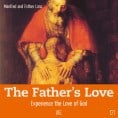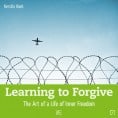In a synagogue, in a publishing magazine, on-line, in a book – in this week and in many different ways I’ve been confronted by a subject that has been on my mind for years. A charity concert in the Synagogue on Ryke Street for the benefit of the Yad Vashem Memorial: I chatted to a friend of mine about the magnificent synagogue and other synagogues, like that on Oranienburger Street, that were once just as magnificent. Oranienburger Street. I told her about the man who had started up the Berlin Literary Forum a few years ago. He had grown up in Berlin before the First World War. As a small child he made sense of the tragedy of what had happened in a simple image: it must be something truly terrible that makes someone flee in such a rush that they leave a bowl of delicious blueberries sitting on the table uneaten! As a Jew, he fled to Holland with the help of his wife during the Second World War. Unlike his parents, he survived the Holocaust and lives in his adopted country to this very day. What made an impression on me back then was the love with which he spoke of both his wives. The first, who died when he was about 60, and his present wife who he had married later, unable to hope that they would spend many more decades together. A deep love for both… different, unique, but each in their own way loved. I told my friend this… because the memories of that morning when I had heard him speaking are still fresh. She told me about a man that had deeply influenced her when, one evening in a close circle of friends, he had spoken about his two wives. He spoke with deep love of his first wife, who he had cared for until her death. He talked about his love for his first wife and about everything that she had given him and meant to him, whilst his second wife sat beside him. For everyone it was clear to see that he loved both. It is possible to love twice if we have made peace with losing someone. Making peace with loss… that’s something I’ve encountered on another level – in an article about the publishers (Diogenes) and friends Rudolf C. Bettschart and Daniel Keel that I found in the current Diogenes Magazine (it was on display for free in Starbucks). They narrowly avoided bankruptcy twice, and started all over again just the same. They stuck by each other. Then a friend recommended me an article that describes vulnerability
as a characteristic of great entrepreneurs. It differentiates between active and passive vulnerability. Active vulnerability is being ready to take risks, to accept that not everything goes well, and to consciously go ahead. In this article the sign of a great entrepreneur is not that they never make mistakes, but that after failure, which will inevitably occur time after time, they refuse to break down and give up. Many people throw in the towel and don’t ever want to be so disappointed again. According to this article, that’s passive vulnerability (whiney, self-pitying, and dejected). Good entrepreneurs are at peace with their failed attempts, and start again from scratch. Similar ideas are to be found in a book that a friend gave me by Paul Getty, the richest man in the world in his day. I’ve put a lot of thought into the question of how after failure, after loss, after painful experiences, we manage to find our way back
into the swing of things. I’ve even written a book about it, with everything that I had to say on the topic a couple of years ago: Jump: Into Fullness of Life. But it’s still on my mind. We can unfortunately never shake off failure and loss. I don’t want to become hard and cold, rather I want to continue to love: people, projects and ideas. To love once. To love twice. The key is to make peace with loss, and then to love from scratch – for the dozenth time if needs be.
Inspirations from Kerstin Hack
© 2024 Heart of Berlin
Theme by Anders Noren — Up ↑



Recent Comments